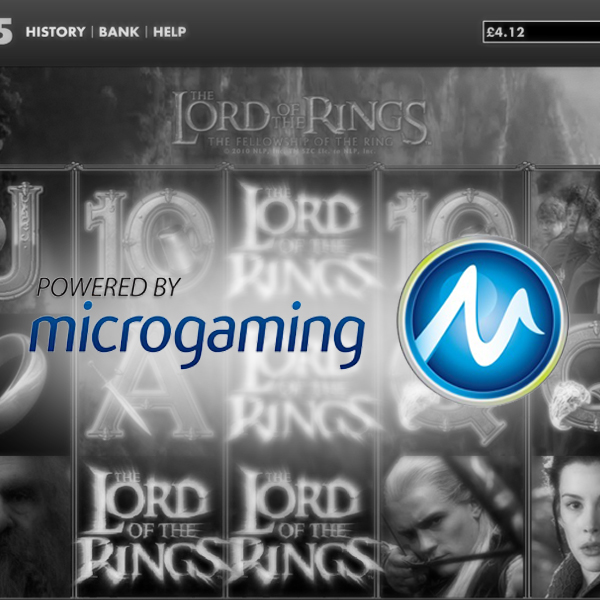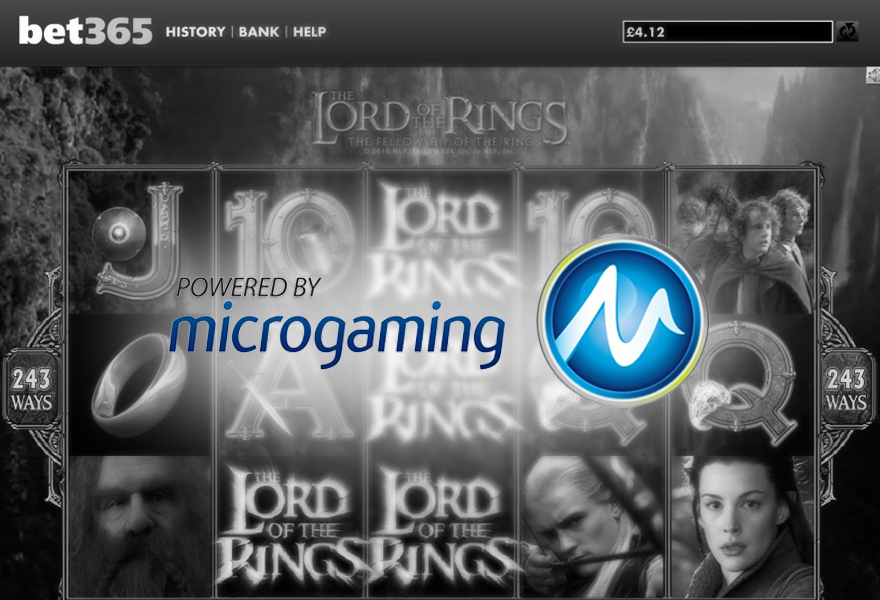It wasn’t until late last month that the news broke that the estate of J.R.R Tolkien, in conjunction with Harper Collins, was suing Warner Bros. for the licensing of the Lord of the Rings rights to Microgaming.
The original deal lead to the creation of The Lord of the Rings: The Fellowship of the Ring slot and was due to allow for more to be made in the future. The digital rights to The Lord of the Rings and The Hobbit were sold to the Isle of Man-based software giants by the company that produced the films which have re-energised the franchise. The only problem was, they weren’t theirs to sell.
 Warner Bros. had only been given permission to sell tangible rights while digital rights were not a part of the deal. Given that the deal was made back in February 2010, almost three years ago, it seems strange that the official rights holders have taken so long to get round to tackling the issue. However, the reason behind this is simple, they just didn’t know that such slots had been made and the rights had been sold. In fact, the story goes that the only reason they found out about the slot at all was that a lawyer who represented the estate of J.R.R Tolkien received an email advertising the game.
Warner Bros. had only been given permission to sell tangible rights while digital rights were not a part of the deal. Given that the deal was made back in February 2010, almost three years ago, it seems strange that the official rights holders have taken so long to get round to tackling the issue. However, the reason behind this is simple, they just didn’t know that such slots had been made and the rights had been sold. In fact, the story goes that the only reason they found out about the slot at all was that a lawyer who represented the estate of J.R.R Tolkien received an email advertising the game.
That incident must have taken place some time ago too, as Microgaming removed the slot without notice or ceremony after we’re told that the licence expired on June 28. Considering the amount that this slot had been marketed this appeared a strange move at the time to remove it so suddenly. It certainly won’t be a coincidence that as well as the $80,000,000 that J.R.R Tolkien’s estate and Harper Collins are suing for, they’re pushing for a ban on all infringing products. Microgaming were clearly aware of the issue much earlier than we were.
Last week when pressed, the South African software company released the following statement: “Any dispute between the parties named in the lawsuit is a matter for them to resolve. It would be inappropriate for Microgaming to comment.”
Back in August when questioned on branded slots for a more general article, the omission of any reference to the LOTR slot is now noticeable. In fact, getting them to say anything was tough enough, initial requests through a third-party PR agency proved fruitless and direct contact with the marketing department eventually resulted in some fairly flavourless comments.
When they did talk, Neil Whyte, head of product channels at Microgaming said this of the licensing process:
“As the world’s largest gaming software provider, we are regularly approached by brands looking to tap into the e-gaming market. We have to be selective, however, as we must ensure that the brand is suitable for a slot game and that it will hit the appropriate demographic.
“If we feel that it will produce a premium quality slot, for the right price, we know that we can create a successful outcome. We have long-term relationships with major entertainment companies which will yield more top quality branded content slots over the coming years.”
In fairness to Microgaming, they haven’t really done anything wrong. Due diligence must have been done so we can assume that there’s little blame being placed at their feet. The fact that they’ve hardly warranted a mention in reports of the suit suggest as much. This experience certainly hasn’t put the company off using branded games. In January of this year, possibly before they knew of problems with the LOTR licence, they announced a deal with DC Entertainment for a Batman licence. The Dark Knight slot was duly launched at the end of June and went some way to covering up for the removal of the Lord of the Rings slot and a lack of any potential sequels.
Fortunately Microgaming can rest easy in the knowledge that DC have always been the correct rights holders to Batman and all related products. But the company is fortunate that it was in the position to be able to replace like for like in terms of big name brands. Other software companies are unlikely to be as lucky. Software companies aren’t going to stop using branded games. They’re powerful acquisition tools and, combined with the correct game mechanics, can dominate wagering in online casinos, particularly among the more casual players.
But despite their undoubted appeal, licensing branded games does come with a different set of pitfalls. There’s the considerable upfront costs that are required in order to get permission to use the rights to build a game with brand and character likenesses in the first place. In addition to that, should they be successful, rights may be sold to competitors as they have been with the Marvel Comic slots which started off as Cryptologic’s pride and joy but can now be found in Playtech casinos across the net.
One neat way around this has been found by Cryptologic who have been able to make games out of titles that didn’t require licensing. Robin Hood and Jack and the Beanstalk serve as a prime examples of this as they aren’t directly branded and have gone on to be two of the Swedish software company’s most popular games.
This may prove to be a viable option for some of the smaller hitters but they’ll have to act fast in order to snap up the best titles. But while Microgaming have been able to cover up for the mistake, even though it wasn’t theirs, this should serve as a warning to them and all other software providers that licensed games open up a whole new can of worms.
